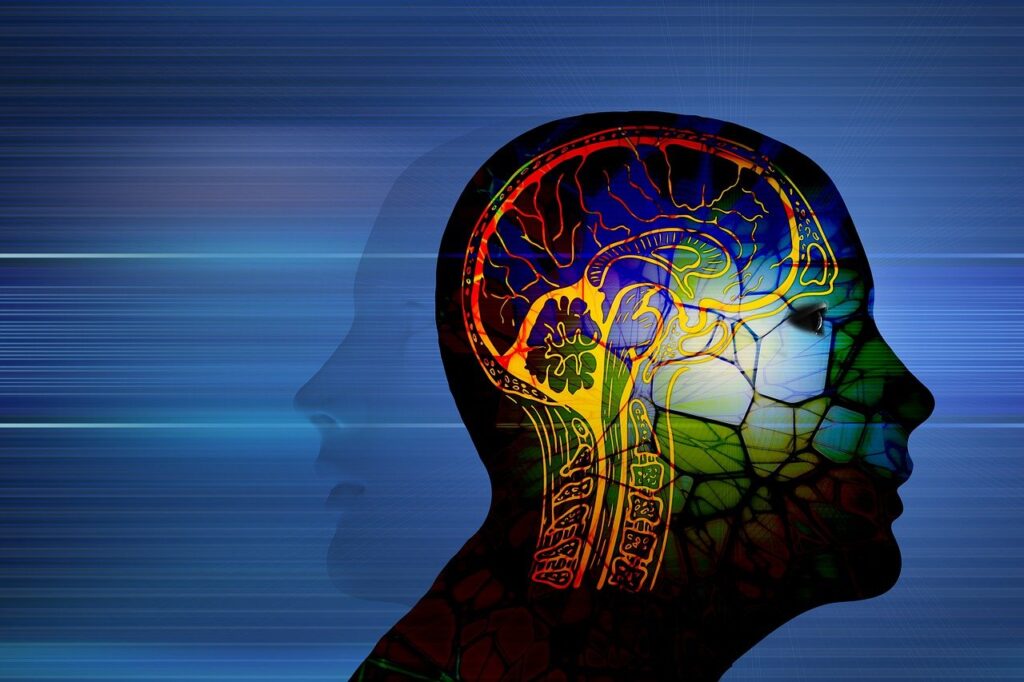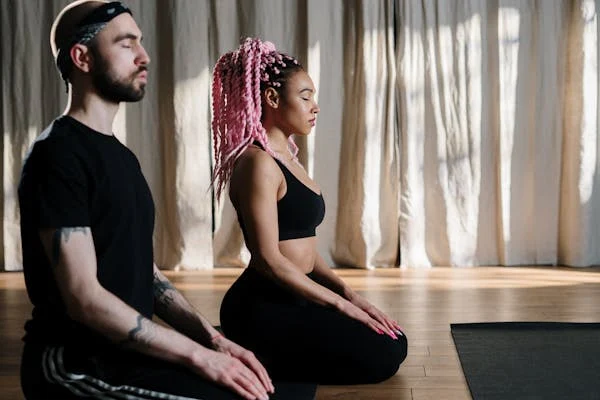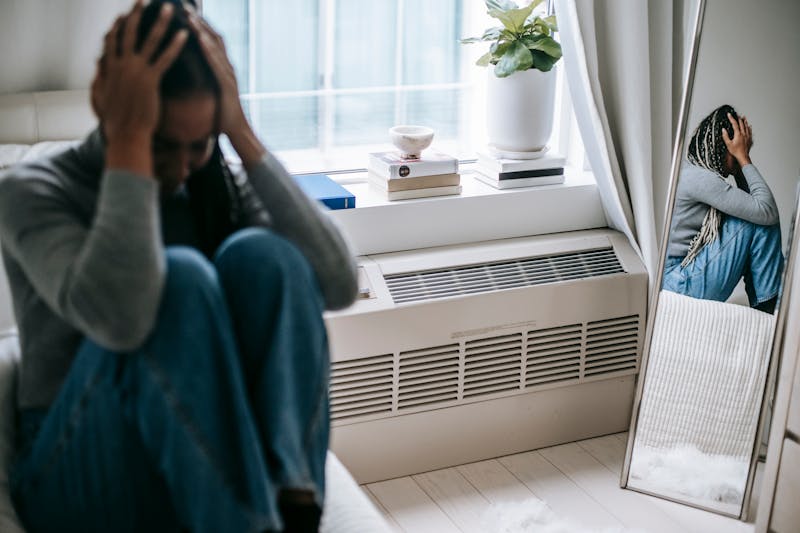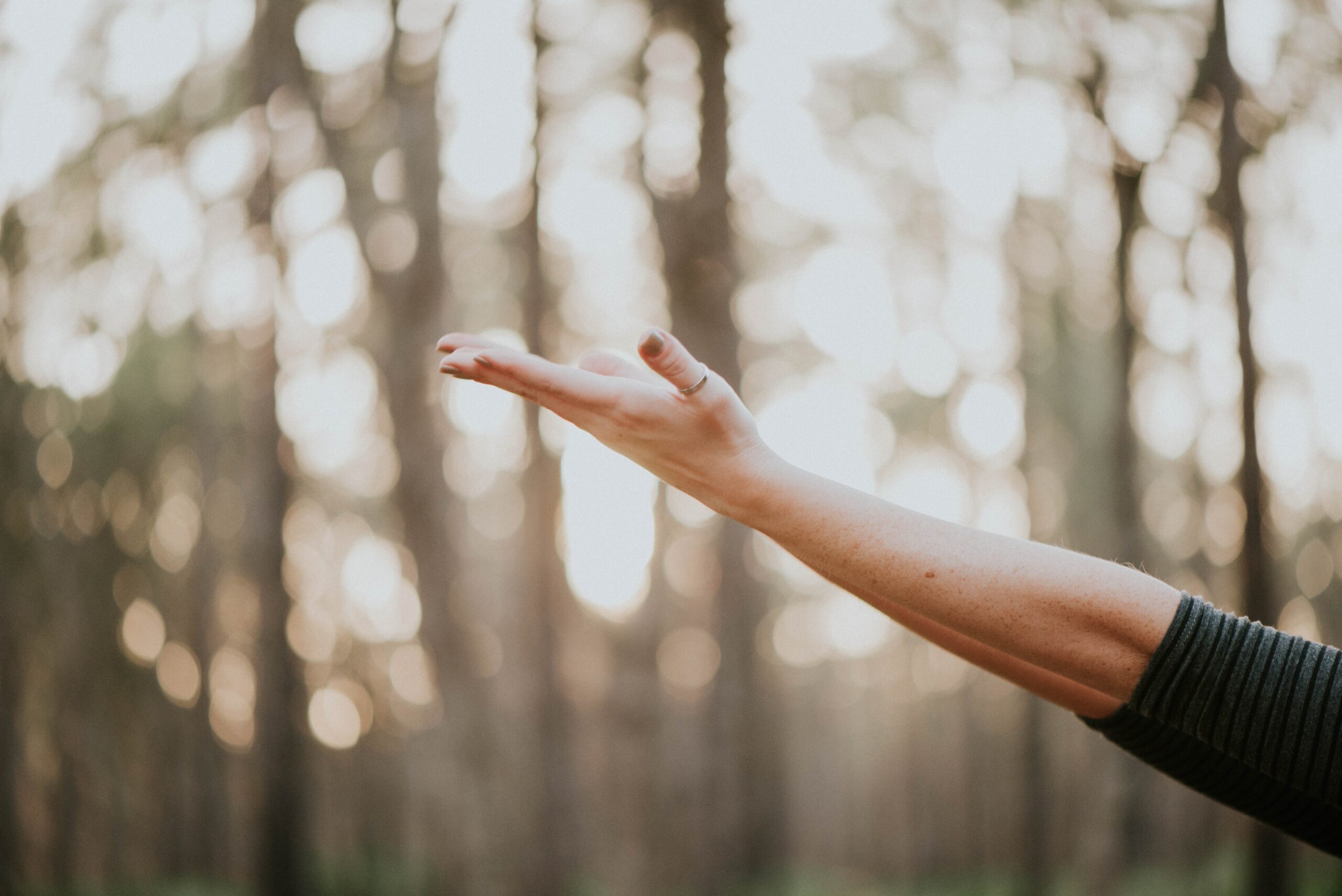Overview:
Discover the transformative power of meditation for anxiety relief in our comprehensive guide. Explore the benefits of meditation for emotional and physical well-being, learn how it combats anxiety disorders, and uncover effective mindfulness techniques to calm anxious feelings. From understanding the science behind meditation to practical tips for beginners, our article equips you with the tools to manage anxiety and achieve inner peace. Dive into guided meditations, breathing exercises, and expert insights to take control of your mental health journey.
Guided Meditation for Anxiety and Stress by Lavendaire
Introduction
In today’s fast-paced world, anxiety has become a common issue for many. Thankfully, meditation offers a powerful tool to manage and reduce anxiety. This guide explores how meditation can help, offers beginner tips, and provides insights into different meditation practices designed to calm anxious feelings.

Understanding Meditation
Meditation is a practice where an individual uses a technique – such as mindfulness, or focusing the mind on a particular object, thought, or activity – to train attention and awareness, and achieve a mentally clear and emotionally calm and stable state.
Benefits of Meditation
Meditation and Emotional and Physical Well-being
Meditation is known to improve both emotional and physical well-being. Regular practice can lead to reduced stress, better emotional health, and improved overall quality of life.
Meditation and Illness
Research indicates that meditation can help manage symptoms of various illnesses, including anxiety disorders. It helps in reducing the physiological markers of stress, thereby aiding in recovery.
Does Meditation Reduce Anxiety or Overthinking?
Yes, meditation can significantly reduce anxiety and overthinking by promoting relaxation and encouraging a more balanced perspective on life’s challenges.
How to Meditate for Anxiety for Beginners
How Long Does It Take for Meditation to Help Anxiety?
While some people might feel immediate benefits, it typically takes a few weeks of regular practice to see significant improvements in anxiety levels. Patience and consistency are key.
Feelings of Anxiousness Versus an Anxiety Disorder
Understanding the difference between occasional anxious feelings and an anxiety disorder is crucial. While meditation can help manage general anxiety, it’s important to seek professional help for anxiety disorders.
Managing Anxiety Through Meditation
Meditation helps in managing anxiety by promoting mindfulness, which allows individuals to stay present and reduce worries about the past or future.
Anxiety’s Effect on Our Body

The Brain’s Response
Anxiety triggers the brain’s fight-or-flight response, leading to physical symptoms like increased heart rate and muscle tension. Meditation helps counteract these effects by promoting relaxation.
Types of Anxiety Disorders
Understanding the different types of anxiety disorders – such as generalized anxiety disorder, panic disorder, and social anxiety disorder – can help tailor meditation practices to specific needs.
How Mindfulness Helps Anxiety
Mindfulness Works, But Not for Everyone
While mindfulness is effective for many, it’s not a one-size-fits-all solution. Exploring different meditation practices can help find what works best for you.
How Mindfulness Calms Anxious Feelings
Mindfulness helps by anchoring you in the present moment, reducing the impact of negative thoughts and emotions.
Calm Anxiety in Three Steps
- Focus on Your Breath: Take deep, slow breaths to calm your mind.
- Observe Your Thoughts: Without judgment, notice your thoughts and let them pass.
- Return to the Present: Gently bring your focus back to the present moment.
The Science of Mindfulness Meditation for Anxiety
Research supports the effectiveness of mindfulness meditation in reducing anxiety. Studies show it can alter brain structure and function, improving emotional regulation.
Should I Choose MBSR or MBCT?
Mindfulness-Based Stress Reduction (MBSR) and Mindfulness-Based Cognitive Therapy (MBCT) are both effective for anxiety. MBSR focuses on stress reduction, while MBCT combines mindfulness with cognitive behavioral techniques.
The Key Differences Between MBSR and MBCT
MBSR is generally an 8-week program aimed at reducing stress, while MBCT is designed to prevent relapse in individuals with recurrent depression and anxiety.
How Mindfulness-Based Cognitive Therapy Helps with Anxiety
MBCT helps by breaking the cycle of negative thought patterns, enabling individuals to respond to stressors more effectively.
Can Mindfulness Really Help Reduce Anxiety?
Yes, numerous studies have demonstrated the effectiveness of mindfulness in reducing anxiety. It helps create a buffer against stress and promotes emotional resilience.
Guided Meditations for Anxiety
A Simple Meditation for Anxiety
A short, daily practice can be highly effective. Try this 5-minute guided meditation to start your journey.
A 30-Minute Meditation for Anxiety and Stress
For a deeper experience, this 30-minute meditation can help you relax and release stress.
A 20-Minute Meditation for Anxiety and Anxious Emotions
This 20-minute session focuses on acknowledging and soothing anxious feelings.
A 17-Minute Meditation to Create Space Between You and Your Anxiety
Learn to detach from anxiety with this 17-minute guided practice.
A 20-Minute Meditation for Working with Anxiety
Engage with your anxiety constructively through this 20-minute meditation.
Breathing Exercises for Anxiety
How to Practice Mindful Breathing
Mindful breathing involves focusing on your breath to anchor yourself in the present moment. It’s a simple yet powerful tool for managing anxiety.
Explore Your Breath
Take time to observe your breath without trying to change it. This can help you connect with the present moment.
A 5-Minute Breathing Meditation
This quick 5-minute exercise is perfect for a fast reset during a busy day.
How to Stop a Panic Attack
A Meditation for Investigating Panic Attacks
Understanding the nature of panic attacks can reduce their intensity. Try this meditation designed for panic situations.
Take a Moment for a Mindful Inquiry Practice
Explore your thoughts and feelings with curiosity rather than judgment through this inquiry practice.
A 30-Minute Meditation for Investigating Panic Attacks
For in-depth exploration, this 30-minute meditation can be very helpful.
3 Ways to Get Out of Panic Mode
- Ground Yourself: Focus on physical sensations to bring yourself back to the present.
- Use Breathing Techniques: Practice deep, slow breathing to calm your nervous system.
- Engage in Mindful Movement: Gentle exercises like yoga or tai chi can help reduce panic symptoms.
Frequently Ask Questions:
What is the 3-3-3 Rule for Anxiety?
The 3-3-3 rule for anxiety is a simple technique to manage anxious feelings. It involves identifying three things you can see, hear, and touch around you when you feel anxious. This grounding exercise helps shift your focus from anxious thoughts to the present moment, reducing anxiety intensity.
What Meditation is Good for Anxiety?
Mindfulness meditation is especially effective for managing anxiety. By focusing on the present moment without judgment, mindfulness helps calm the mind and reduce anxious feelings. Techniques such as mindful breathing, body scans, and loving-kindness meditation are particularly beneficial for easing anxiety.
What is the Best Remedy for Anxiety?
While remedies for anxiety vary, meditation is widely regarded as one of the best natural remedies. Its ability to promote relaxation, reduce stress, and increase self-awareness makes it a powerful tool for managing anxiety. Other remedies include exercise, deep breathing exercises, and seeking professional help if needed.
How to Stop Feeling Anxious?
To stop feeling anxious, incorporate mindfulness meditation into your daily routine. Practice deep breathing exercises, engage in regular physical activity, and challenge negative thoughts with cognitive-behavioral techniques. Creating a healthy lifestyle that includes adequate sleep, a nutritious diet, and social support can also help alleviate anxiety.
Meditation for Anxiety and Overthinking
Meditation is effective for combating both anxiety and overthinking. By cultivating mindfulness, meditation helps you become aware of your thoughts without getting caught up in them. Techniques like focused breathing and body scans can redirect attention away from overthinking and promote a sense of calm.
Meditation for Anxiety and Depression
Meditation can manage symptoms of both anxiety and depression. Mindfulness practices help develop a more balanced perspective on emotions and reduce the impact of negative thoughts. Regular meditation can improve mood, increase self-compassion, and enhance overall well-being.
Free Meditation for Anxiety
Many free meditation resources are available online for anxiety relief. Websites, apps, and YouTube channels offer guided meditations, mindfulness exercises, and relaxation techniques at no cost. These resources make meditation accessible to everyone, regardless of budget or experience level.
Meditation to Relieve Stress and Anxiety
Meditation is powerful for relieving stress and anxiety. By promoting relaxation and reducing physiological markers of stress, such as elevated heart rate and muscle tension, meditation helps the body and mind unwind. Incorporating meditation into your daily routine can provide lasting relief from stress and anxiety.
Best Guided Meditation for Anxiety and Depression
Guided meditations designed for anxiety and depression can be highly effective. Look for guided meditation programs or apps that focus on mindfulness-based cognitive therapy (MBCT) or mindfulness-based stress reduction (MBSR). These guided practices often include soothing imagery, relaxation exercises, and affirmations to alleviate symptoms of anxiety and depression.
Meditation for Anxiety Reddit
Reddit communities offer valuable support and resources for those seeking meditation techniques for anxiety. Explore subreddits dedicated to mindfulness, meditation, and mental health to find tips, advice, and personal experiences from others who have used meditation to manage anxiety. Engaging with these communities can provide encouragement and motivation on your meditation journey.
Meditation for Anxiety and Sleep
Meditation can improve sleep quality and reduce anxiety-related sleep disturbances. Practices such as progressive muscle relaxation, guided imagery, and deep breathing exercises can help calm the mind and body before bedtime. By promoting relaxation and reducing racing thoughts, meditation prepares the mind for restful sleep, leading to a more rejuvenating night’s rest.
Key Takeaways
- Meditation Reduces Anxiety: Regular practice can significantly lower anxiety levels.
- Mindfulness is Effective: Mindfulness techniques help manage and reduce anxious feelings.
- Consistency is Crucial: Daily practice yields the best results.
- Seek Professional Help if Needed: Meditation complements but does not replace professional treatment for anxiety disorders.
By incorporating these meditation practices into your daily routine, you can create a sense of calm and control over anxiety. For more guided meditations and mindfulness tools, explore our digital products and check out these recommended resources.





